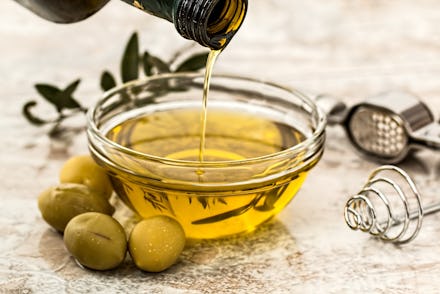Can Fats Be Healthy? Here's Why You Should Get Enough (Good) Fats in Your Diet

Despite the diet industry saying otherwise, fat isn't your enemy. Part of the reason this myth is problematic is because "fat" becomes an all-encompassing term to vilify calories. However, excess fat can be just as harmful as a lack of fat — eliminating all fats means you eliminate the consumption of good fats, which are required for a healthy lifestyle.
Read more: This Groundbreaking High Fat Diet Could Combat Diabetes and Promote Weight Loss
According to the American Heart Association, not only does your body need fat, it downright requires it: "Dietary fats are essential to give your body energy and to support cell growth." Furthermore, dietary fats are needed because "they also help protect your organs and help keep your body warm. Fats help your body absorb some nutrients, and produce important hormones, too." A telltale sign that you don't have enough fat in your diet can be detected through deficiency of vitamins A, D, E and K, according to Calorie King.
AMA notes that there are four types of fats: saturated, trans, monounsaturated and polyunsaturated. "The bad fats, saturated and trans fats, tend to be more solid at room temperature (like a stick of butter)," says Calorie King. "Monounsaturated and polyunsaturated fats tend to be more liquid (like liquid vegetable oil)."
In addition to weight gain, habitual consumption of bad fats can result in heart disease and a stroke. However, good fats like fatty acids omega-3 and omega-6 can lower the risk of heart disease. On the other hand, they aren't naturally produced by the human body and therefore need to be supplemented by diet.
Calorically, every gram of fat equals nine calories. So, whether good or bad, moderation is key — with an obvious preference given to the beneficial fats.